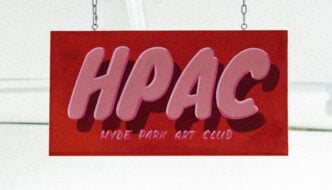The True Price Of Artistry
July 4, 2015
In 2014 Jarvis Cocker told The Times that paying university fees would have prevented him attending Central St Martins; a world without the epic musical delights of Common People or Disco 2000? Well, it doesn’t bear thinking about…
Neither does the idea that somewhere, someone in a basement flat is heating super noodles as they feverishly search for change down the back of a couch – whilst considering whether to invest said coppers into actual food, or use what they’ve found to buy new strings, brushes, or paint. And, this sorry so and so is his or her very own Jarvis Cocker, existing in a time when austerity cuts into the arts, while ever escalating university fees make it virtually impossible for certain demographics to hone their craft and sustain a life in the arts.

[Image courtesy of likefm]
Many find this bleak outlook too much to bear and take the safer road, a road that leads to pensions, regular pay progression and health plans courtesy of the powers that be. Others don’t. Some pursue a life with little financial security, blocking out that dark, persistent voice in the back of their head that tells them to “get a proper job.” So, what’s life like for them? And just how much is sacrificed in the name of art?
In 2008, I interned for a London based publication where I met a girl who was on a long term internship (otherwise known as slave labour) who informed me that her friend survived in a similar position by sleeping in her car and washing in the toilets at work. She’d been doing it for months. And at that time, it seemed like a resourceful way to live. It’s only in retrospect that this seems so utterly ridiculous and extreme. Living in a car and rinsing your armpits in the public facilities: a sacrifice too far?
Maybe not, maybe this is the price you pay to do something you love. But, watching someone you love make that sacrifice can be hard to witness. Surviving on nothing but packet pasta and cereal, my brother cut a sorry shape whilst living in Brighton, attending a private music school that he’d somehow managed to gain access to as a result of loans, grants, bursaries and dogged determination. His flat, owned by two accommodating drug dealers who lived downstairs, was situated on one of the most dangerous areas in Brighton (with lots of stabbings and the like). Needless to say, my mother was concerned. Things really hit a low when he decided to carry out his own dental work with the blunt end of a whammy bar (how ironic) leaving him swollen, bruised but carrying the cash the fella in a white coat would have pocketed. Home dental work with a musical instrument: a sacrifice too far?
All this sacrificial behaviour unfortunately doesn’t necessarily lead to a rosy future; even successful artists face a world where the fruits of -clearly- arduous labour, are minuscule. Writer and musician Sam Duckworth supported fellow muso Thom Yorke, who removed his music from popular streaming website Spotify due to the woeful earnings the Swedish born company offered. Duckworth himself figured that after 4685 plays of his own material, he’d only accumulated a heart-breaking £19.22p. Saving that 15% deposit for the old bricks and mortar is clearly a pipedream for these aspiring musicians. Maybe they should try and live in their cars?

[Image: Pledgemusic.com]
Only this month, pop sensation Taylor Swift (Tay-Tay to some) stuck it to the man (figuratively speaking) and wrote a letter to the big wigs at Apple, demanding that she and fellow artists actually get paid for music that is played via Apple sites. Music that they themselves have composed. Sounds fair? Yet, somehow, this ‘forward thinking’ multi-billion dollar conglomerate initially felt it appropriate to offer 3 months of free streaming, without so much as a nod of agreement from the artists themselves. Outstanding.
But, its isn’t all doom and gloom. Organisations such as The National Youth Arts Trust and home grown charities, such as “Love Music Help Musician’s UK”, exist solely to make the lives of those evolving Jarvis Cockers out there a little less Dickensian. They also have the support of other fellow artists such as Jessica Heynes, who made front page news this year at the Baftas after expressing her concern for those trying to make their way in the creative arts in the face of financial adversity. A sentiment shared by Julie Walters, whose public comments on the arts and their accessibility for all are well documented.
The actors, painters, musicians and designers need that support, because is isn’t acceptable to sleep rough, deprive yourself of food or make the decision to risk your own health – simply because that’s the only way you can survive whilst doing what you love. A passion shouldn’t feel like a curse. Let’s hope that the looming cuts on the horizon of a new Conservative government don’t exacerbate an already dire situation for the UK’s up and coming artists.
Gemma Thorpe




Comments